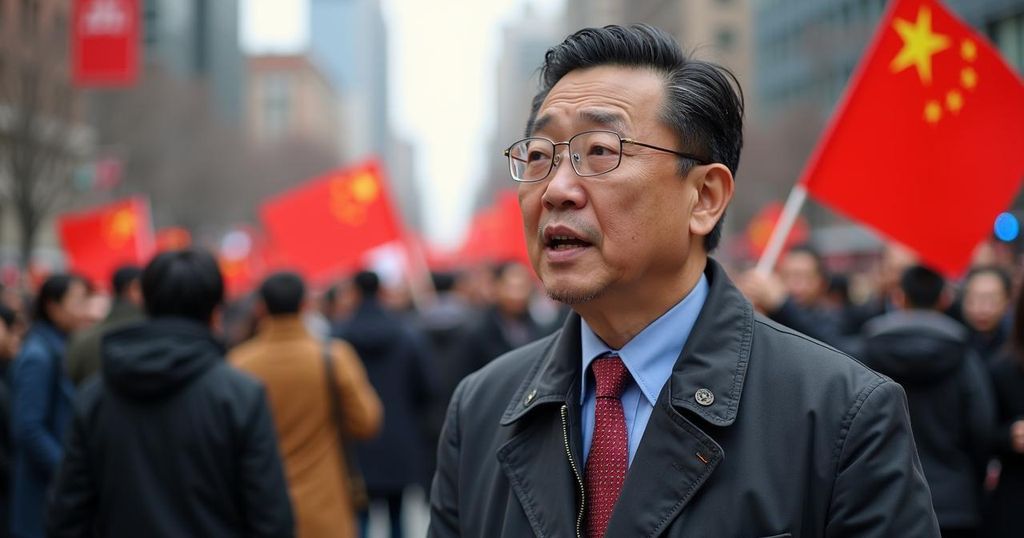Chinese citizens are intensely observing the US election, concerned about its impact on Sino-US relations amid rising tensions over Taiwan and global conflicts. Opinions vary, with some preferring Donald Trump due to perceived military restraint, while others show a cautious optimism for Kamala Harris and an appreciation for her role in promoting gender equality. The overall sentiment reflects a desire for peace and improved communication between the two nations.
In China, citizens are closely monitoring the US elections, filled with both interest and apprehension over the possible ramifications for their own lives and international relations. The atmosphere in Ritan Park, where seniors gather for dance lessons, reflects this unease. One resident, Mr. Xiang, expressed concerns about deteriorating Sino-US relations, stating, “None of us wants to see a war.” This sentiment resonates widely, as many Chinese people fear the possibility of armed conflict, not only between China and the United States but also the ongoing wars in the Middle East and Ukraine. Among those expressing opinions, Mr. Meng, an elderly man, suggested a preference for Donald Trump’s presidency, citing, “Although he imposes economic sanctions on China, he does not wish to start or fight a war.” In contrast, he criticized President Biden’s foreign policy, associating it with increased hostilities and supporting the Ukraine conflict, stating, “It is Mr. Biden who supports Ukraine’s war and both Russia and Ukraine suffer great loss from the war.” Interestingly, younger attendees, such as 17-year-old Lucy, reflect a nuanced understanding of international politics. She appreciates Harris’s candidacy as a significant step towards gender equality in leadership, a theme not present in the Chinese political landscape. Moreover, she believes increased cultural exchanges between the two nations could foster better relations. The divide in opinions underscores the complexity of Chinese views towards the US elections. While many see a potential Trump administration as a continuation of hostile economic policies, there are also undercurrents of hope regarding Kamala Harris’s potential for stability, especially concerning sensitive issues such as Taiwan. The sentiment permeates conversations in parks and public spaces, suggesting a populace that is both patriotic and engaged in global affairs. As November 5 approaches, the stakes of the election for both nations continue to heighten, with many saying their aspirations for peace hang delicately in the balance.
The article explores the opinions of ordinary Chinese citizens as they react to the upcoming US election, particularly regarding the potential impacts on Sino-US relations. In a climate of heightened tensions over critical issues such as Taiwan, trade, and military conflicts, the article illustrates how Chinese individuals from various demographics voice their concerns and hopes for the election outcomes. The complexities of international relations, especially in the context of rising nationalism and economic competition, form a backdrop to their sentiments, with younger generations also navigating cultural ties with the United States.
In summary, the upcoming US elections evoke a mixture of anxiety and hope among the Chinese populace. Many express a clear preference for a candidate who they believe might foster peace and stability, particularly in relation to military conflicts. The article highlights not only the fears surrounding potential warfare and economic sanctions but also glimpses of optimism among younger generations regarding cultural exchange and gender equity in leadership. As the election nears, the implications of the results extend deeply into the dynamics of Sino-US relations, reflecting the intertwined fates of both superpowers.
Original Source: www.bbc.com







